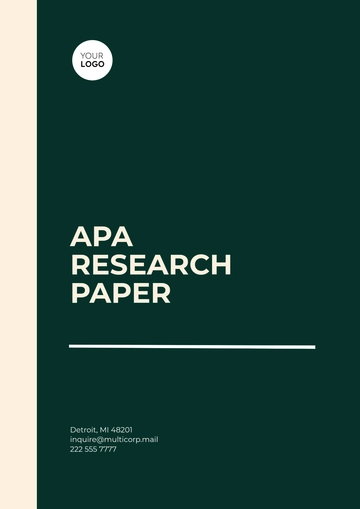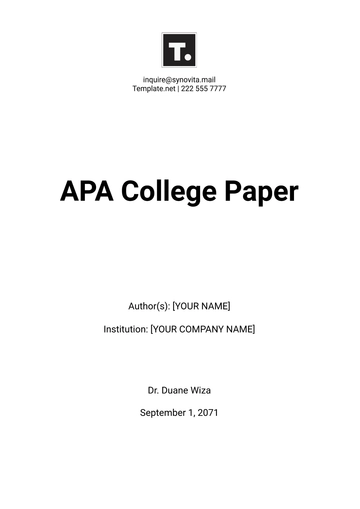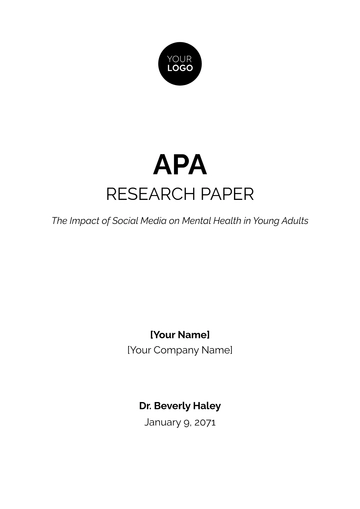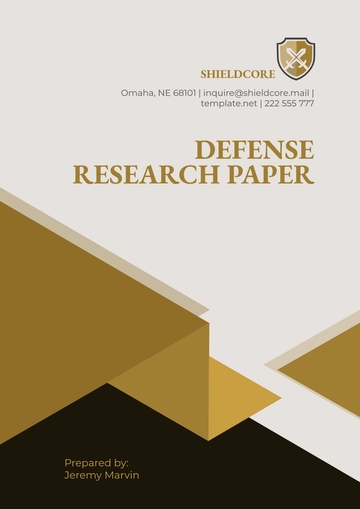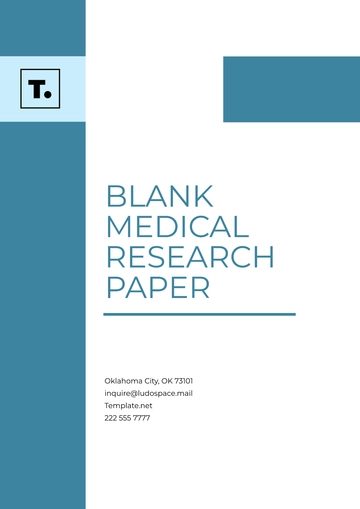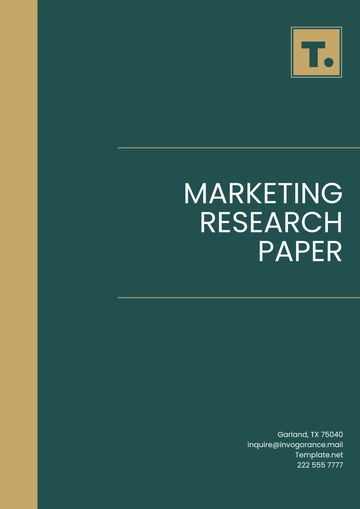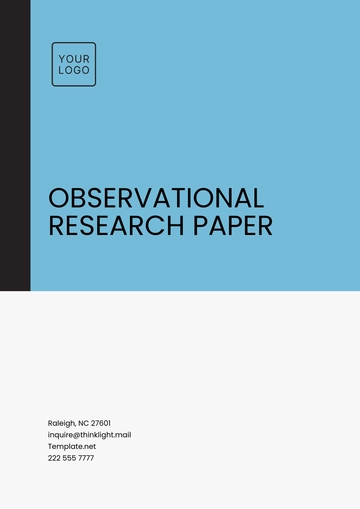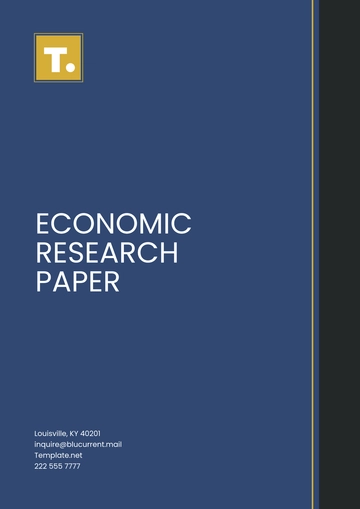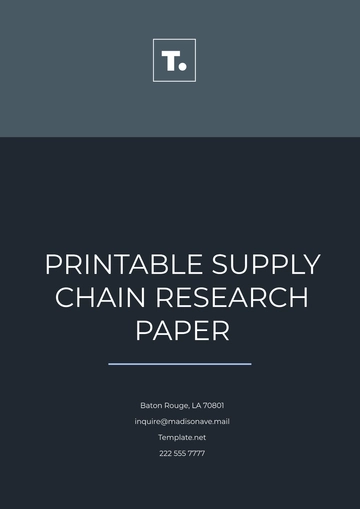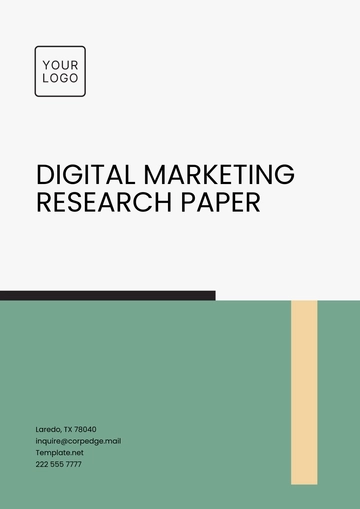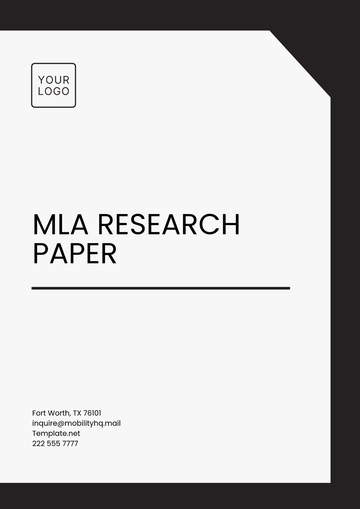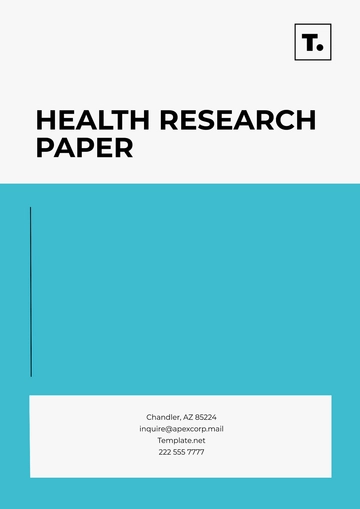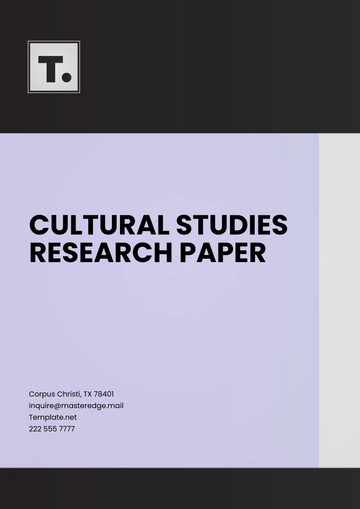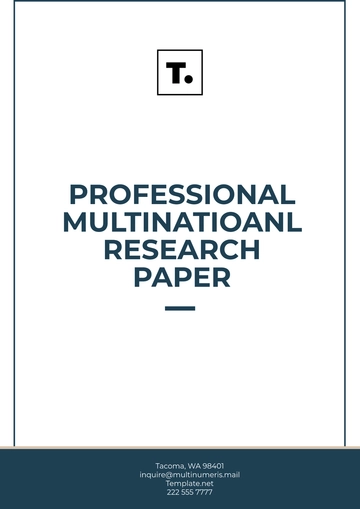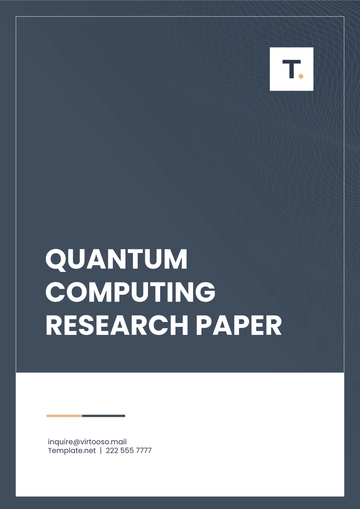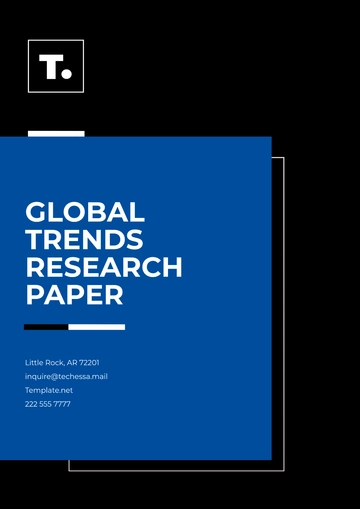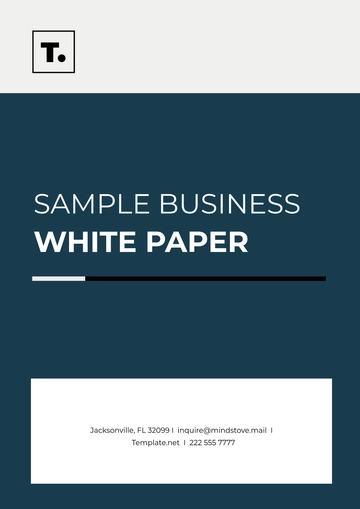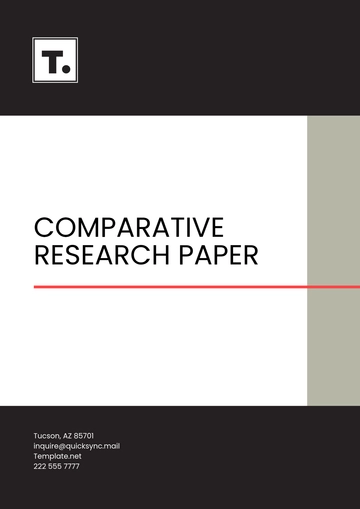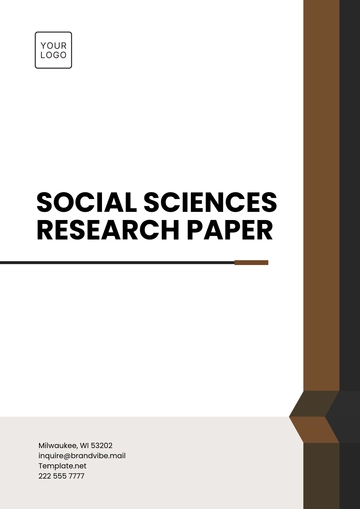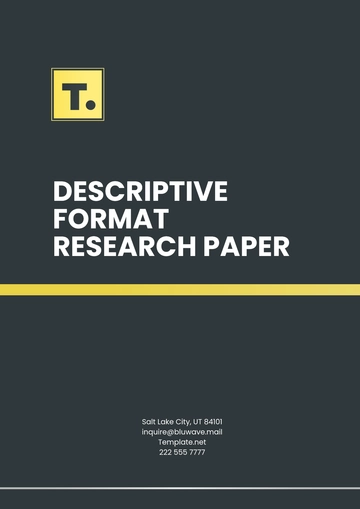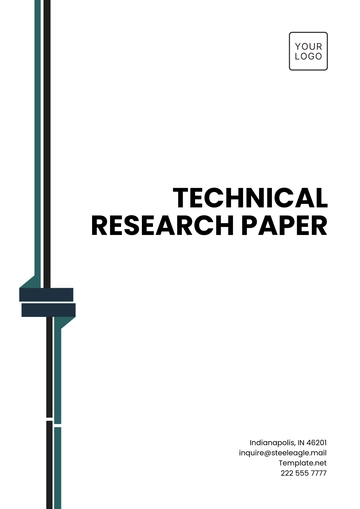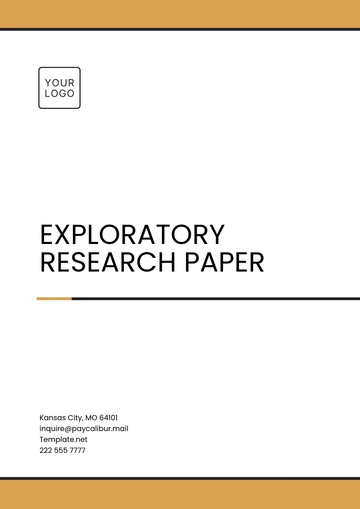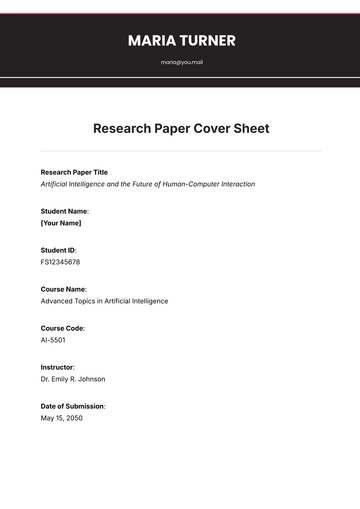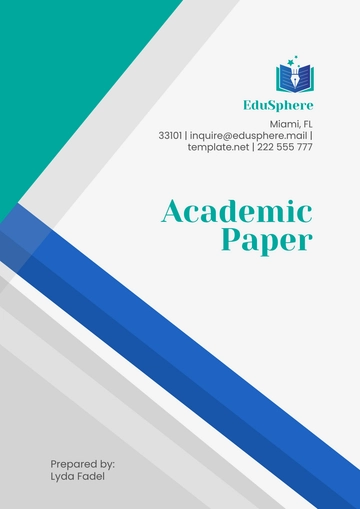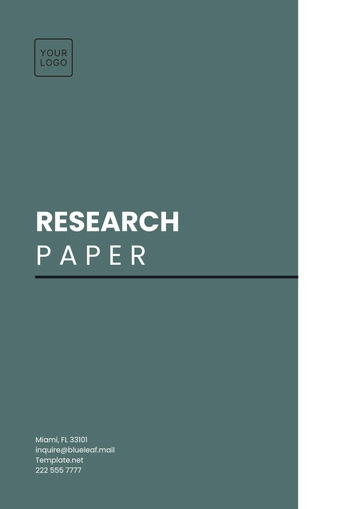Free Marketing Research Paper
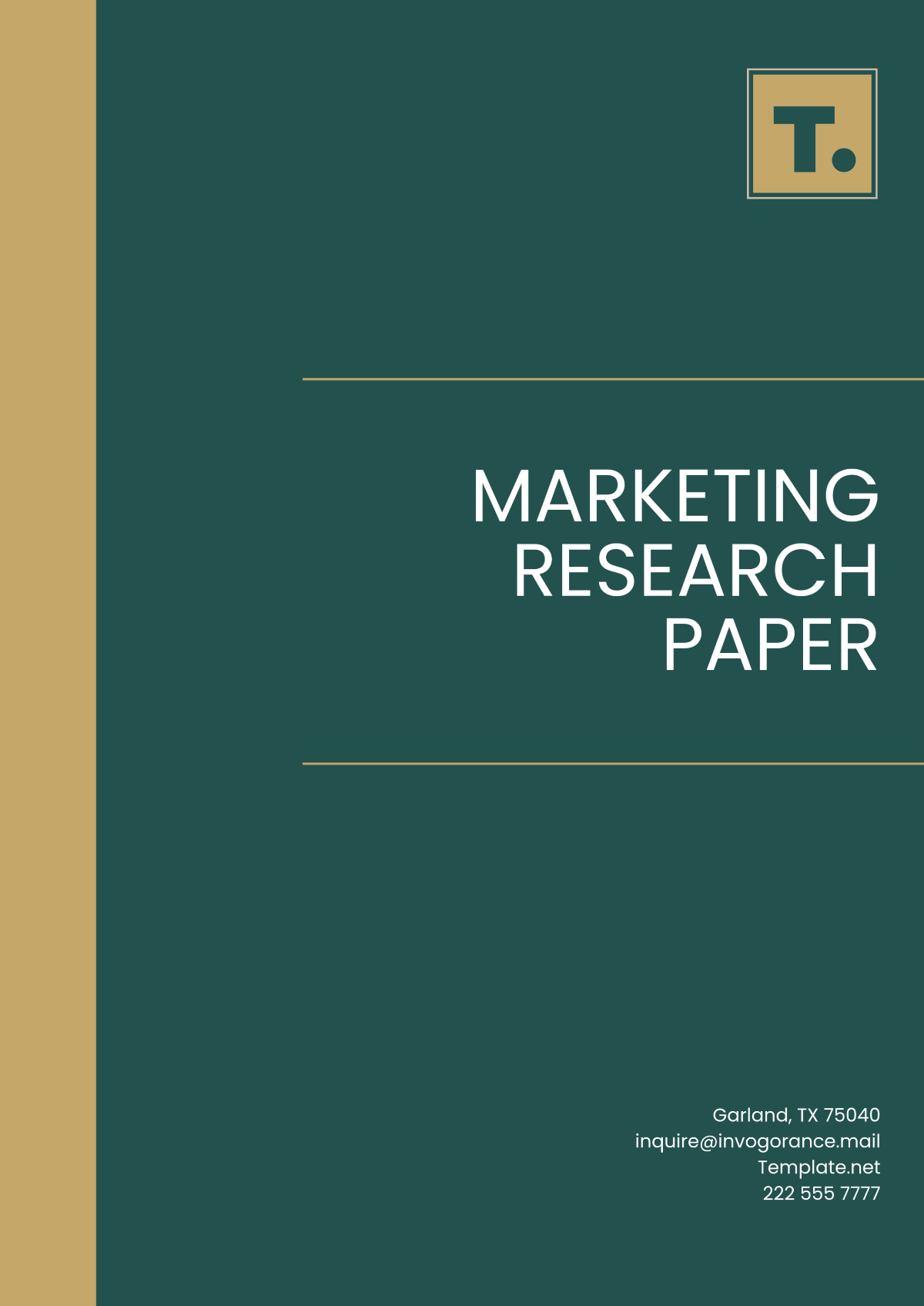
I. Title Page
Main Title: Examination of Digital Marketing Strategies in 2060
Author: [Your Name]
Date: January 15, 2060
Organization: [Your Company Name]
II. Abstract
This research explores the evolving landscape of digital marketing in the year 2060. The study involves a comprehensive analysis of the current digital marketing strategies, assessing their effectiveness and the challenges they address. Employing mixed-method research methodology, the findings reveal significant trends and innovations that redefine consumer engagement. The conclusions drawn offer insights into future marketing dynamics and propose strategic recommendations for organizations aiming to capitalize on digital advancements.
III. Introduction
In an increasingly digital world, understanding the evolution of marketing strategies is essential for businesses aiming to maintain competitive edges. This research investigates the effectiveness and transformations in digital marketing practices as we delve into the year 2060. Our objectives are to identify emerging trends, evaluate their impacts, and propose recommendations for future marketing endeavors.
IV. Literature Review
The literature review focuses on prior research studies that encompass digital marketing frameworks and their developments over the past decades. Key concepts such as data-driven marketing, augmented reality advertising, and customer personalization are explored. Theories from industry experts including Smith (2058) and Johnson (2059) are critically analyzed to establish a well-rounded understanding of the current digital marketing ecosystem.
V. Methodology
The research employs a mixed-method approach, integrating qualitative interviews with industry leaders and quantitative data analysis collected from global digital platforms. The study design includes a cross-sectional survey distributed to over 500 marketing professionals worldwide. Data were analyzed using advanced statistical software to extract significant patterns and outcomes.
VI. Findings/Results
The analysis indicated several key insights:
85% of marketers reported an increased reliance on artificial intelligence tools to personalize consumer experiences.
Virtual and augmented reality technologies are used by 70% of businesses for immersive advertising.
There is a notable shift towards consumer-centric content, with 60% of companies deploying interactive digital storytelling techniques.
Strategy | Adoption Rate | Effectiveness Score |
|---|---|---|
AI Tools | 85% | 9.0/10 |
AR/VR | 70% | 8.5/10 |
VII. Discussion
The results highlight an accelerated transition towards tech-driven marketing tactics, as indicated by the high adoption rates of AI and AR/VR technologies. These trends align with the hypothesis that technological innovation is at the core of marketing evolution. However, the study reveals that organizations face challenges in ensuring data privacy and achieving sustainable consumer engagement.
VIII. Recommendations
Based on the findings, the following strategic recommendations are proposed:
Invest in AI technologies to enhance consumer personalization and optimize resource allocation.
Develop immersive AR/VR experiences to captivate audiences and differentiate brand presence.
Prioritize ethical data management practices to build consumer trust and comply with regulations.
IX. Conclusion
This research underscores the pivotal role of technological advancements in reshaping marketing strategies over the coming decades. By embracing innovation and addressing potential challenges, businesses can position themselves strategically in the ever-evolving digital marketing landscape of 2060. The insights offered herein serve as a roadmap for organizations seeking sustainable growth and consumer engagement.
X. References
Smith, J. (2058). "Digital Marketing: The Next Frontier". Journal of Marketing Innovations, 34(2), 45-67.
Johnson, L. (2059). "Revolutionizing Consumer Engagement through AI". Marketing Science Review, 27(1), 123-145.
- 100% Customizable, free editor
- Access 1 Million+ Templates, photo’s & graphics
- Download or share as a template
- Click and replace photos, graphics, text, backgrounds
- Resize, crop, AI write & more
- Access advanced editor
Simplify your marketing analysis with the Marketing Research Paper Template from Template.net. Fully editable and customizable, this template is perfect for projects involving market trends, consumer behavior, or advertising strategies. Editable in our Ai Editor Tool, it provides a clear structure to present your research findings effectively. The professional design ensures your paper is both informative and visually appealing, making
